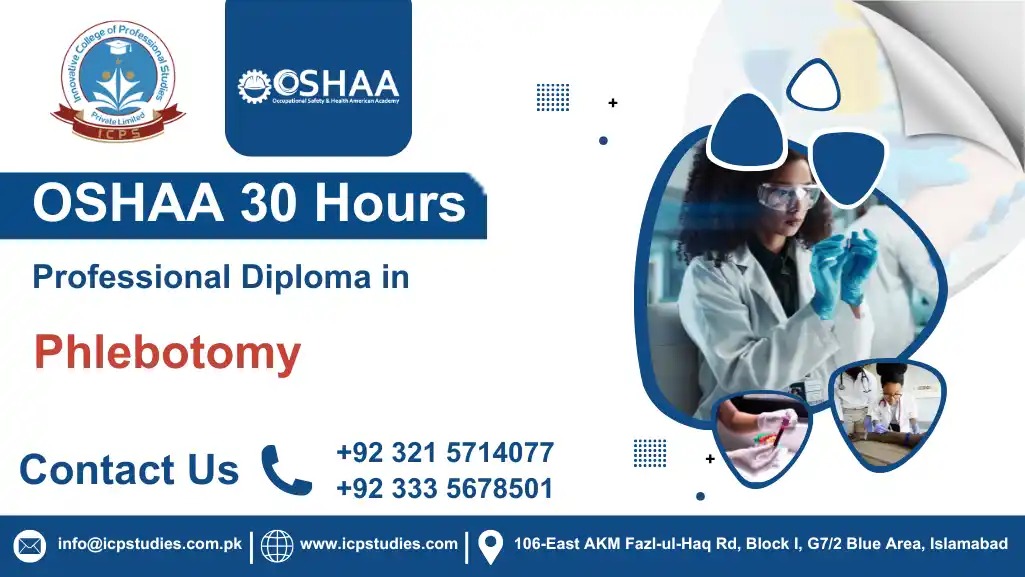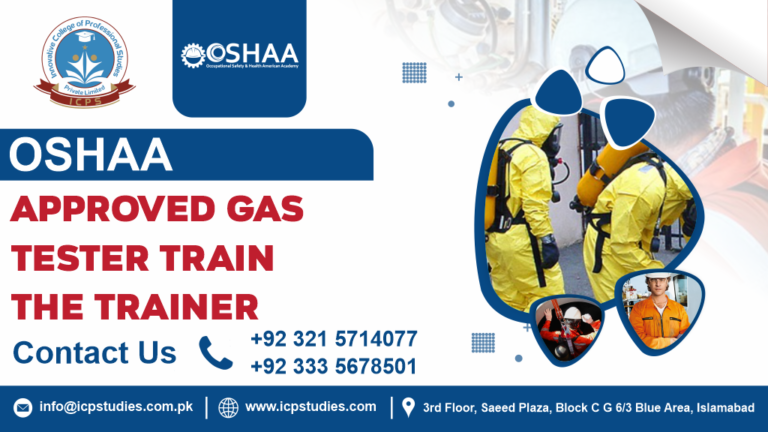The OSHAA 30-Hours Professional Diploma in Phlebotomy is a specialised qualification designed for individuals seeking a structured and practical introduction to phlebotomy. This diploma equips learners with the essential knowledge, skills, and confidence required to perform blood collection procedures in clinical and non-clinical environments, ensuring safety, accuracy, and patient care. Phlebotomy is a critical area of healthcare that requires precision, professionalism, and a strong understanding of infection control and patient communication. This OSHAA 30-Hours Professional Diploma in Phlebotomy delivers a comprehensive understanding of the principles and practices of phlebotomy.
It combines theoretical knowledge with hands-on training to prepare learners for real-world scenarios in hospitals, clinics, laboratories, and community healthcare settings. The course covers essential topics such as anatomy and physiology of the circulatory system, venepuncture techniques, specimen handling, infection prevention, and patient preparation. It also integrates guidance on professional conduct, safety standards, and legal responsibilities. The OSHAA 30-Hours Professional Diploma in Phlebotomy stands out due to its focused curriculum, hands-on approach, and alignment with modern healthcare requirements.
The OSHAA 30-Hours Professional Diploma in Phlebotomy is an essential qualification for anyone seeking to start or advance their career in the healthcare sector. Whether you are a student, a healthcare worker, or a laboratory professional, this OSHAA 30-Hours Professional Diploma in Phlebotomy provides you with the comprehensive training required to excel in the vital field of phlebotomy. With practical skills, safety knowledge, and patient care expertise, this diploma will open doors to various career opportunities in medical settings. Whether you are looking to start a new career or strengthen your clinical foundation, this course provides a stepping stone into the world of healthcare with valuable insights and practical experience.
All About OSHAA 30-Hours Professional Diploma in Phlebotomy
Course Overview
The OSHAA 30-Hours Professional Diploma in Phlebotomy is a focused training programme designed to provide learners with essential knowledge and hands-on skills in blood collection techniques. The course covers critical aspects of phlebotomy, including patient preparation, venepuncture procedures, specimen handling, infection control, and safety protocols. It ensures participants are fully prepared to carry out phlebotomy procedures in clinical, laboratory, or community healthcare settings.
With a strong emphasis on both theory and practice, this diploma enables learners to develop technical proficiency and confidence in working with patients and biological samples. The curriculum reflects UK healthcare standards, promoting accuracy, professionalism, and patient care throughout the blood collection process.
This OSHAA 30-Hours Professional Diploma in Phlebotomy is ideal for aspiring phlebotomists, healthcare assistants, or anyone looking to gain a foundational clinical skill. It serves as a recognised qualification for those seeking to enter the healthcare workforce or progress into more advanced medical or laboratory roles.
Study Units
- Introduction to Phlebotomy and the Role of a Phlebotomist
- Anatomy and Physiology for Phlebotomy
- Blood Collection Techniques and Equipment
- Infection Control and Safety Procedures
- Patient Care and Communication in Phlebotomy
- Legal and Ethical Considerations in Phlebotomy
- Blood Sample Handling and Laboratory Procedures
- Venipuncture and Capillary Collection Techniques
To ensure learners are well-prepared and can fully benefit from the course content, the following entry requirements must be met:
- Minimum Age: Applicants must be at least 18 years old at the time of enrolment.
- Educational Background: A minimum of secondary school education or equivalent is recommended. While no formal healthcare qualification is required, a basic understanding of science subjects is advantageous.
- Work Experience: No prior clinical or work experience is necessary. However, individuals currently working or aspiring to work in healthcare or related fields may find the course particularly beneficial.
- Language Proficiency: Learners must have a good command of the English language, both written and spoken, to understand course materials and communicate effectively in healthcare environments.
This course is designed for a wide range of individuals who are interested in entering or advancing within the healthcare sector. It is particularly suitable for:
- Aspiring phlebotomists seeking a recognised qualification to start their career
- Healthcare assistants and support workers looking to expand their clinical skills
- Nursing and medical students wishing to gain practical venepuncture experience
- Laboratory technicians or medical staff involved in specimen handling
- Career changers exploring opportunities in the healthcare field
- Employers aiming to train staff in safe and professional blood collection practices
- Individuals preparing for roles in hospitals, clinics, blood donation centres, and private laboratories
This diploma is ideal for anyone committed to delivering high standards of patient care and clinical accuracy in the practice of phlebotomy.
Learning Outcomes
Introduction to Phlebotomy and the Role of a Phlebotomist
- Understand the purpose and importance of phlebotomy in healthcare
- Identify the responsibilities and professional standards expected of a phlebotomist
- Recognise various work settings and environments where phlebotomy is practiced
Anatomy and Physiology for Phlebotomy
- Gain knowledge of the circulatory system, including veins and arteries
- Identify key anatomical sites used for blood collection
- Understand the physiological processes related to blood flow and collection
Blood Collection Techniques and Equipment
- Learn the correct use of phlebotomy tools and devices
- Demonstrate appropriate preparation of equipment prior to procedures
- Apply best practices in choosing the correct tools for various patient needs
Infection Control and Safety Procedures
- Apply standard precautions to prevent cross-contamination and infection
- Understand personal protective equipment (PPE) usage and disposal
- Implement safety protocols to protect both patients and healthcare workers
Patient Care and Communication in Phlebotomy
- Develop effective communication skills for interacting with patients
- Manage patient anxiety and ensure comfort during procedures
- Demonstrate respect for patient dignity, privacy, and consent
Legal and Ethical Considerations in Phlebotomy
- Understand legal responsibilities and patient rights in phlebotomy
- Apply ethical principles in practice, including confidentiality and informed consent
- Recognise the importance of accurate documentation and reporting
Blood Sample Handling and Laboratory Procedures
- Learn proper labelling, storage, and transportation of blood samples
- Understand the chain of custody and handling protocols
- Ensure accuracy in documentation and minimise sample rejection
Venipuncture and Capillary Collection Techniques
- Demonstrate proficiency in performing venipuncture and capillary sampling
- Select appropriate techniques based on patient condition and test requirements
- Manage complications or challenges during blood collection procedures
FAQs OSHAA 30-Hours Professional Diploma in Phlebotomy







